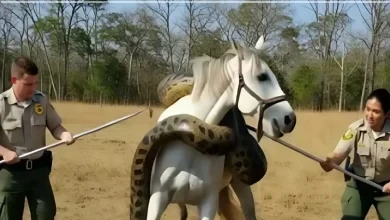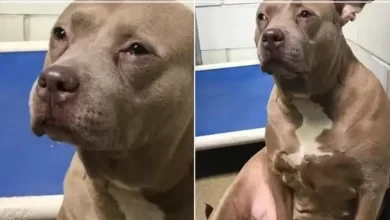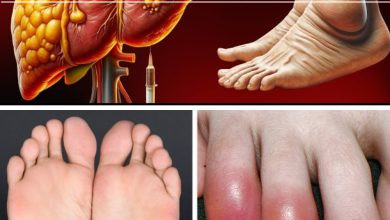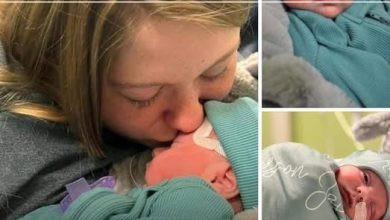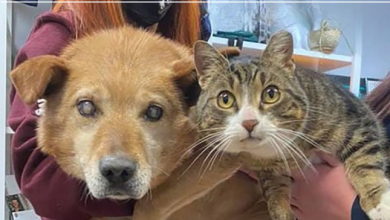My dad didn’t realize he would soon regret inviting my brother and me to his wedding to the woman he cheated on our mother with.
When my dad called to invite my 12-year-old brother and me to his wedding, I thought the worst part would be watching him marry the woman who tore our family apart. I had no idea my quiet little brother was planning something that would make the day unforgettable.
My name is Tessa.
I’m 25 now, working as a marketing coordinator, still figuring out how to be an adult when childhood was stolen too soon.
My little brother, Owen, is 12.
He used to be the sweetest, most thoughtful kid I knew—the kind who left cookies for delivery drivers and teared up when cartoon characters got hurt.
“Tessa, look what I made for Mom,” he’d say, showing me a crayon drawing or clay figure from school.
He’d spend hours creating elaborate Mother’s Day cards, full of glitter and stickers, writing messages like “You’re the best mom in the universe” in his careful, tiny handwriting.
But after what happened, that innocence faded. It was like a light in him was slowly extinguished.
Our dad, Evan, had been cheating on our mom with a woman from work named Dana. Dana with the blinding white smile and perfect hair, who worked at his accounting firm. Mom discovered the affair when she came home early one Thursday afternoon, carrying a potted plant she’d just bought. She walked into the living room, expecting to surprise Dad with his favorite dinner, and instead found him and Dana on the couch.
I’ll never forget the way Mom dropped that plant, like it burned her. The pot shattered on the floor, and she just stood there in shock.
“Linda, I can explain,” Dad said, scrambling to button his shirt.
But Mom said nothing. She turned around and walked upstairs.
What followed was worse than any movie scene—weeks of yelling, crying, and begging. I’d come home from work to find Mom at the kitchen table, tissues scattered around her, eyes red and swollen.
“Did you know?” she once asked me. “Did you see something I missed?”
I didn’t. But I wished I had. Maybe I could’ve warned her.
For weeks, she tried to fix things. She went to counseling alone because Dad wouldn’t join her. She prayed nightly at the foot of their bed, just like when Owen and I were little. She wrote long letters telling Dad how much she loved him, how they could work through it together.
“Twenty-two years, Tessa,” she said while folding his laundry. “We’ve been together since college. That has to mean something.”
But it didn’t.
Dad moved in with Dana just three weeks after serving divorce papers. Twenty-two years gone, erased for a woman he’d known for only eight months.
I remember Owen whispering in the dark that first night Dad left. “Does Dad love her more than us?”
I didn’t know how to answer. How do you explain to a 12-year-old that adults can make choices so selfish they hurt everyone?
“He loves us, Owen. He’s just confused,” I said, though I wasn’t sure I believed it.
“Then why doesn’t he want to live with us anymore?”
I hugged him and kissed his forehead. “I don’t know, buddy. I just don’t know.”
Mom tried to keep it together for us, but I watched her unravel. She lost twenty pounds in three months, surviving on crackers and tea. She cried over little things—a family commercial, an old coffee mug, a missing Tupperware lid.
A year after the divorce, Dad called one Tuesday evening, chipper like he was inviting us to brunch.
“Hey sweetheart! How’s work?”
“Fine. What’s up?”
“Well, Dana and I are getting married next month. Backyard ceremony at her sister’s place. Simple but nice. I’d love for you and Owen to be there—it would mean the world to me.”
I stood in my kitchen holding the phone, torn between laughing and screaming.
“You want us at your wedding,” I repeated.
“Of course! You’re my kids. This is a new chapter for all of us, and I’d love for you to be part of it.”
A new chapter. Like our family was just a draft he could rewrite.
“I’ll think about it,” I said.
“Great! I’ll send the details. Love you, Tess.”
He hung up before I could respond.
When I told Owen, he refused.
“I don’t care if the Pope invited me,” he muttered, eyes glued to his video game. “I’m not watching Dad marry the woman who wrecked our family.”
Then our grandparents stepped in. Dad’s parents called us, lecturing about forgiveness and family unity.
“Holding on to anger will only hurt you,” Grandma said. “Your father made mistakes, but he’s still your father. Being there would show maturity.”
“Do you want everyone to think you’re bitter and petty?” Grandpa added.
After days of guilt-tripping, Owen gave in.
“Fine,” he said softly. “I’ll go to the stupid wedding.”
But there was a quiet determination in his voice that unsettled me.
The morning of the wedding, Owen was unusually calm. He dressed himself without prompting, in a navy shirt and khakis.
“You okay, buddy?” I asked while putting on my earrings.
“Yeah. I’m fine,” he said, not meeting my gaze.
I should’ve known something was up when he came into my room two weeks earlier, holding his iPad.
“Tessa, can you order something from Amazon for me?”
“What is it?” I asked, distracted.
He showed me the screen—itching powder. A prank product.
“You planning to prank your friends?” I asked.
He shrugged. “Yeah, something like that.”
I should have asked more questions. But I was busy, and it seemed harmless.
“Sure, I’ll order it,” I said, clicking “Buy Now.”
Looking back, I had my suspicions. But I didn’t stop him.
Why?
Because I watched our mother suffer in silence, and part of me wanted someone else to feel even a fraction of that pain.
We arrived early at Dana’s sister’s house. Dana flitted around in a silk robe, laughing with her bridesmaids and coordinating with the wedding planner.
Dad greeted us, all smiles.
“There are my kids! You both look so grown up,” he said, hugging us stiffly.
“Thanks for coming. It means so much to me.”
Owen looked up at him with a polite smile. “We wouldn’t miss it, Dad.”
But I caught the flatness in his voice, the one Dad didn’t.
About an hour before the ceremony, Owen approached Dana, carrying a garment bag.
“Hi, Dana,” he said sweetly. “You look beautiful.”
“Thank you, Owen!” she beamed.
“I noticed your jacket on the chair. I can hang it up for you so it doesn’t get wrinkled.”
Dana handed him the jacket with a smile, distracted by her phone.
“You’re a lifesaver,” she said.
Owen disappeared into the house for a few minutes, then returned empty-handed.
“All set,” he said.
“Thank you, angel,” she replied.
At 3:30, guests were seated. Dana disappeared to get ready.
Owen sat beside me, perfectly composed.
“You good?” I whispered.
He nodded. “I’m good.”
Dana walked down the aisle, radiant. The officiant began the ceremony.
But three minutes in, Dana’s smile wavered. She scratched her arm, adjusted her collar, shifted uncomfortably.
By the vows, she was tugging at her neckline and scratching everywhere.
“Are you okay?” Dad whispered.
“My skin is burning,” she gasped, struggling out of her jacket.
She bolted inside, her bridesmaids chasing her.
Fifteen minutes later, she reappeared in a wrinkled dress, her makeup smudged, her skin blotchy.
“Sorry, everyone,” she said, trying to sound upbeat. “Let’s finish this.”
But the mood was broken. The ceremony was rushed and awkward.
Later, Dad pulled me aside.
“Tessa, do you know what that was? Dana’s skin was burning. She’s never had allergies before.”
I shrugged. “Maybe it was the detergent or polyester?”
I hadn’t lied. I just let him assume.
“That’s so weird,” he muttered.
“Yeah,” I said. “Really bad timing.”
Driving home, Owen was silent. Then he whispered, “She didn’t cry.”
“What do you mean?”
“Dana didn’t cry. She was embarrassed and itchy, but she didn’t cry. Mom cried for months.”
Then he added, “But she’ll remember. Every time she thinks about her wedding day, she’ll remember feeling powerless and humiliated. Like Mom did when she found them.”
I realized then that Owen’s idea of justice wasn’t to hurt Dana deeply. It was to make her feel even a sliver of what Mom had endured.
“Do you feel bad?” I asked.
He thought for a moment. “No. I feel like it’s a little more fair now.”
Now, two weeks later, Dad won’t speak to us. Dana’s family calls us “evil children” who need therapy. Our grandparents say we owe them both apologies and have shamed the family.
But I haven’t apologized. And I won’t.
I didn’t plan what Owen did. I didn’t pour the powder into her jacket. But I also didn’t stop him. I just let it happen.
And in a world where our mother’s pain was ignored, where her suffering was swept aside, I think that’s okay.
Maybe that makes me a terrible person. Maybe I should’ve been the adult and stopped my brother’s quiet revenge.
But when I remember my mother crying alone after Dad left, I can’t bring myself to feel sorry.
Am I wrong for not stopping Owen? I honestly don’t know. But I’m not sorry.
